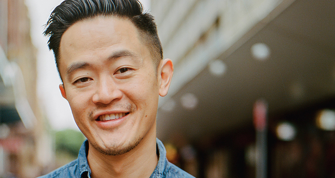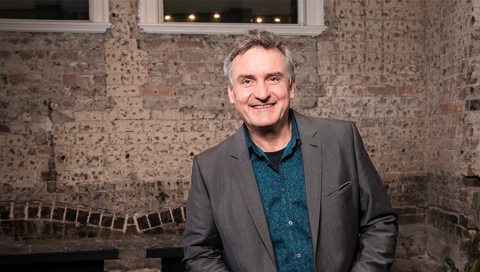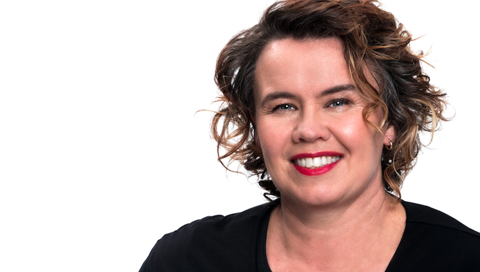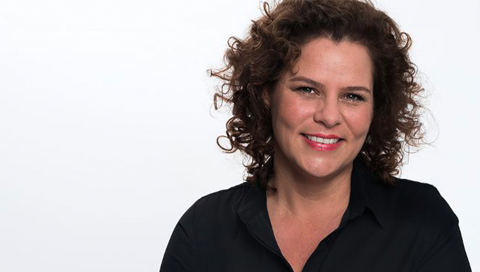Explore upcoming events

We speak to the many brilliant ABC presenters joining the Festival on what ideas, perspectives and opportunities the pandemic opened up for them, their literary comforts and the books that give them hope.
Benjamin Law
Benjamin Law and Beverley Wang present Stop Everything! – ABC RN’s weekly guide to pop culture and the newest-latest. Catch it on Fridays at 10am or anytime on the ABC listen app.
The pandemic has radically altered how we conceive of space, distance and connectedness. Now that we’re a year into this new reality, what are you making space for in your life?
My impression is everyone’s gotten better at finding joy where they can, because they’ve had to. Before the pandemic, I was interstate every week for work, so I’ve rediscovered the balm of staying in with my partner, reading books, cooking, exercising, watching good TV – and embracing the uncomplicated joy of those things. I spend a lot of time on the family WhatsApp thread dedicated to my one-year-old nephew. And weirdly enough, I’ve rediscovered video games – about 15 years after I last played them. And lemme just say, they’ve gotten good.
What books or writers have you found comforting, instructive or transportive during the pandemic?
Barack Obama’s memoir A Promised Land, because he’s such a damn good writer and never yields to the temptation of hagiography. I read James Baldwin’s Giovanni’s Room for the first time and don’t know why it took me so long. I’m reading a tower of new Australian books for festival season – books by Emily Maguire, Krissy Kneen, Liam Pieper, Evelyn Araluen, Eileen Chong, Gary Lonesborough, Rick Morton, Linda Jaivin, Sarah Krasnostein – that I’m inhaling. And weirdly, I’ve loved a good pandemic novel: Emily St. Mandel’s Station Eleven and Rumaan Alam’s Leave the World Behind.
What book (or piece of writing) has left you with a sense of hope?
Brandon Taylor’s Real Life. Not because of the story itself, which is arguably heavy. But because he’s a first-time writer who can write like that. It makes me excited for the new generation of novelists coming up.
Beverley Wang
The pandemic has radically altered how we conceive of space, distance and connectedness. Now that we’re a year into this new reality, what are you making space for in your life?
Rest, wellbeing and creative pursuits. Lockdown also highlighted the importance of supporting local community, and a resolve to be more conscious about cultivating and maintaining friendships.
What books or writers have you found comforting, instructive or transportive during the pandemic?
I got into the habit of listening to audiobooks during the pandemic. I cooked many lockdown meals listening to audiobooks and podcasts, and despite the sometimes dark content of the books, they helped transport me from my immediate reality to different eras and experiences. Some of the highlights of my lockdown audiobook listening: The Trauma Cleaner by Sarah Krasnostein, read by Rachael Tidd, followed immediately by The Erratics by Vicki Laveau-Harvie, and read by the author. Their excellence was a highlight of some long, dark lockdown days.
I also got a lot of enjoyment out of the audiobook of Mariah Carey’s bestselling memoir, The Meaning of Mariah Carey, performed by none other than MC herself. Jenny Odell’s How to Do Nothing also gave me a lot of food for thought. And I’ve just started Cathy Park Hong’s Minor Feelings.
What book (or piece of writing) has left you with a sense of hope?
I loved and deeply resonated with Nyadol Nyuon’s essay about finding an inner life from the wreckage of the pandemic.
Richard Glover
Thank God It’s Friday! is an award-worthy weekly radio comedy show hosted by Richard Glover with live comedy and music, broadcast live on ABC Radio Sydney every Friday from 5pm to 6pm.
The pandemic has radically altered how we conceive of space, distance and connectedness. Now that we’re a year into this new reality, what are you making space for in your life?
Proust. OK, it sounds pretentious, but I’ve been trying to get around to reading him for years and lockdown gave me the chance. I’m now just turning the corner towards the finish line of volume 6. It is so much ruder, funnier and slapsticky than I’d imagined. For example, there are two identical twins, who both look like tomatoes. One sells his sexual services to a wealthy Frenchman, but the rich Frenchman mistakes which twin is which, and constantly approaches the wrong guy. He’s punched each time, with the result he can no longer face eating tomatoes. He even intercedes with other hotel guests when they try to order tomatoes, with the result the chef can no longer shift his rather excellent tomato dishes…
What books or writers have you found comforting, instructive or transportive during the pandemic?
I loved Emily Maguire’s Love Objects. I’ve always thought of books as a gymnasium for empathy, and this is the perfect example. A character whose condition (hoarding) we are so used to mocking or pitying suddenly emerges in a new light. And Emily’s ability to create a thoroughly real world just grows and grows.
What book (or piece of writing) has left you with a sense of hope?
Julia Baird’s Phosphorescence is a great book for any time, but it chimed perfectly with COVID-19. In life, times are often tough – but consolation is always as close as the grass outside your back door, the park down the road, or the sky above you...
Kate Evans
ABC RN’s The Bookshelf, presented by Kate Evans and Cassie McCullagh, reviews the latest in fiction for dedicated readers and for those who wish they read more. Catch it every Friday at 12 midday or anytime on the ABC listen app.
The pandemic has radically altered how we conceive of space, distance and connectedness. Now that we’re a year into this new reality, what are you making space for in your life?
On a practical level, 2020 changed the way I worked as a broadcaster. For most of the year, I recorded interviews and the weekly review discussions for The Bookshelf from home, complete with the sounds of passing motorbikes, trucks idling, concrete sawing (for some reason) and house demolitions. This led to renewed gratefulness for my sound-engineer colleagues; not to mention the privilege of still having a job, colleagues, deadlines and books to read. I missed the tangential and ad hoc connectedness with my wildly clever colleagues, not to mention with the world and with friends. But of course, I always found space for books.
What books or writers have you found comforting, instructive or transportive during the pandemic?
This is an impossible question, you know that right? Because books can be and are all of those things, although I do have a bit of resistance to the idea that books should be comforting first or as a higher order initiative. The discomfort of a book that imagines the anxious chitter of ants or the mind of someone difficult or despairing, the creation of something as beautiful as octopus ink that is transformative but fought over, the creation of claustrophobic spaces underground full of dying ideas... all these things leave me fizzing with ideas and possibilities (and yes I’m imagining here Laura Jean McKay’s The Animals in That Country, Robbie Arnott’s The Rain Heron and Gail Jones’ Our Shadows...) while entering the mind of someone full of wild despair, honestly I feel like so many books do that in mind-boggling ways I can’t even list them.
What book (or piece of writing) has left you with a sense of hope?
Books full of hope and wonder? Oh dear, every book I have read in the last year immediately slips from my memory. But I’ll add Francis Spufford’s Light Perpetual, for its exultant descriptions of ordinary lives and a loving description of a city; Lisa Harding’s Bright Burning Things for a vivid and brutal description of someone unravelling, and yet surviving; Max Porter’s The Death of Francis Bacon for simply daring to be difficult and experimental; Nguyễn Phan Quế Mai’s The Mountains Sing, for showing how fiction can remake histories; and Rebecca Giggs’ Fathoms: the world in the whale for showing how inventive and lyrical tough non-fiction can be.
Cassie McCullagh
The pandemic has radically altered how we conceive of space, distance and connectedness. Now that we’re a year into this new reality, what are you making space for in your life?
FAMILY!! I’ve got a lot of older relatives – some overseas – who’ve lost a lot of social interaction due to COVID. It’s meant more talking on the phone, but also more messages and emails and photo-sharing. It’s been the upside of the new normal.
What books or writers have you found comforting, instructive or transportive during the pandemic?
The fantastic playwright Tom Wright (also Artistic Associate at Belvoir Theatre) said something on The Bookshelf right at the beginning of the pandemic that has stayed with me. He said that we’d be living and thinking more “locally”, and proximity would become increasingly important in our daily concerns. This was informing his reading, which is famously prolific. Of course, he was absolutely bang on.
What book (or piece of writing) has left you with a sense of hope?
Nothing, and everything! I don’t really look for hope in books, because I’m way too cynical. I like them sharp and mean and brutally cruel enough to pierce my hard old heart. But the very existence of books, and the overflowing love so many of us have for them, is what makes me hopeful. As long as we’re still interested in hearing and telling each other stories, then there is still reason for hope.


